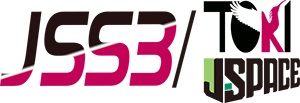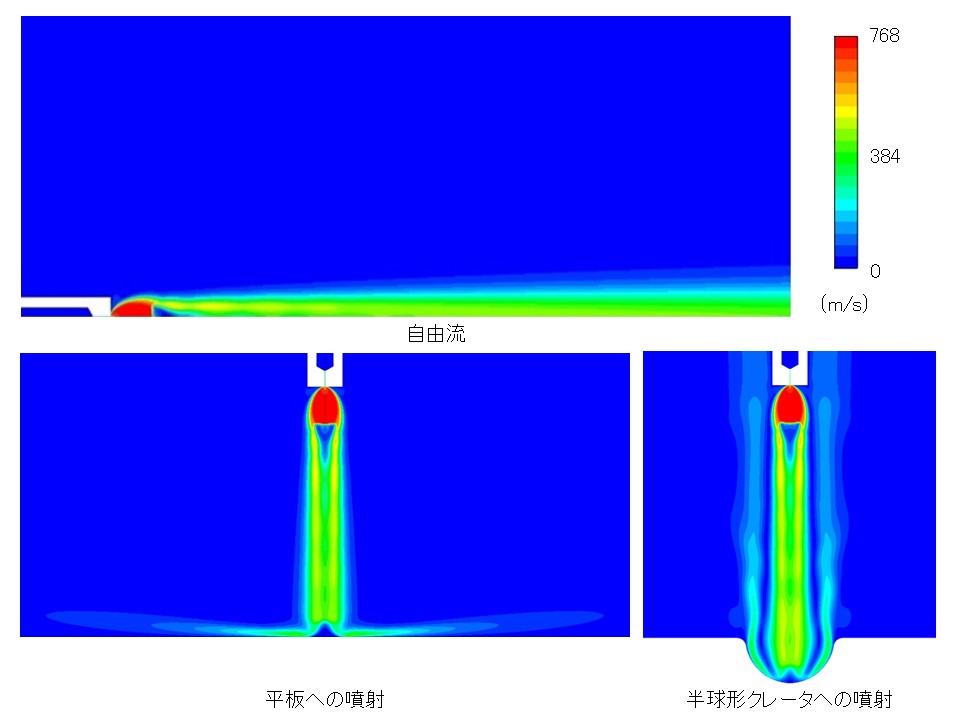Study on Dynamics of Spacecraft and Space Rocket
JAXA Supercomputer System Annual Report April 2020-March 2021
Report Number: R20ECWU24
Subject Category: Cooperative Graduate School System
- Responsible Representative: Shujiro Sawai, Institute of Space and Astronautical Science
- Contact Information: Yusuke Maru(maru.yusuke@jaxa.jp)
- Members: Haruaki Seta, Maiko Yamakawa, Kentaro Watanabe
Abstract
Fluid phenomena that appears in space rockets and spacecraft was analysed. There are two main subjects; one is the integrated aerodynamic shape design of the engine and the airframe in the reusable ballistic flight rocket equipped with the air breathing engine. The other was to evaluate the interference between the exhaust plume of the thruster and the regolith on the surface of the celestial body, assuming a lunar planet takeoff and landing aircraft.
Reference URL
N/A
Reasons and benefits of using JAXA Supercomputer System
It is used for relatively large-scale CFD analysis (aerodynamic design research) and parametric study with a large number of cases (interference evaluation research between exhaust plume and regolith).
Achievements of the Year
Using Ansys Fluent provided by the ISV service, we performed CFD analysis of the exhaust plume in the regolith scattering experiment by thruster injection jet. The analysis was a steady-state analysis, and using the axis rotation model, and SST K-omega was used as the turbulence model (Fig.1). shows the analysis result of the case of free-flow, flatplate, hemispherical crater.
An integrated characterization of the airframe and the intake of the reusable suborbital rocket equipped with an air-breathing conbined-cycle engine was analyzed with the FaSTAR code. Figure 2 shows comparison between the CFD analysis results and the visualization results of the flow field in the wind tunnel experiment. The CFD results reproduce the experimental results well, and the validity was validated. From the viewpoint of characterization evaluation, both the experiments and the CFDs have shown that the boundary layer has a large effect on overall performance.

Fig.2: Comparison between the CFD analysis results and the visualization results of the flow field in the wind tunnel experiment
Publications
N/A
Usage of JSS
Computational Information
- Process Parallelization Methods: N/A
- Thread Parallelization Methods: Automatic Parallelization
- Number of Processes: 1
- Elapsed Time per Case: 5 Hour(s)
Resources Used(JSS2)
Fraction of Usage in Total Resources*1(%): 0.12
Details
Please refer to System Configuration of JSS2 for the system configuration and major specifications of JSS2.
| System Name | Amount of Core Time(core x hours) | Fraction of Usage*2(%) |
|---|---|---|
| SORA-MA | 635,103.86 | 0.12 |
| SORA-PP | 6,398.31 | 0.05 |
| SORA-LM | 0.00 | 0.00 |
| SORA-TPP | 0.00 | 0.00 |
| File System Name | Storage Assigned(GiB) | Fraction of Usage*2(%) |
|---|---|---|
| /home | 494.32 | 0.45 |
| /data | 9,940.47 | 0.19 |
| /ltmp | 5,533.86 | 0.47 |
| Archiver Name | Storage Used(TiB) | Fraction of Usage*2(%) |
|---|---|---|
| J-SPACE | 0.00 | 0.00 |
*1: Fraction of Usage in Total Resources: Weighted average of three resource types (Computing, File System, and Archiver).
*2: Fraction of Usage:Percentage of usage relative to each resource used in one year.
Resources Used(JSS3)
Fraction of Usage in Total Resources*1(%): 0.03
Details
Please refer to System Configuration of JSS3 for the system configuration and major specifications of JSS3.
| System Name | Amount of Core Time(core x hours) | Fraction of Usage*2(%) |
|---|---|---|
| TOKI-SORA | 10.88 | 0.00 |
| TOKI-RURI | 14,284.45 | 0.08 |
| TOKI-TRURI | 0.00 | 0.00 |
| File System Name | Storage Assigned(GiB) | Fraction of Usage*2(%) |
|---|---|---|
| /home | 667.57 | 0.46 |
| /data | 10,719.30 | 0.18 |
| /ssd | 1,049.04 | 0.55 |
| Archiver Name | Storage Used(TiB) | Fraction of Usage*2(%) |
|---|---|---|
| J-SPACE | 0.00 | 0.00 |
*1: Fraction of Usage in Total Resources: Weighted average of three resource types (Computing, File System, and Archiver).
*2: Fraction of Usage:Percentage of usage relative to each resource used in one year.
JAXA Supercomputer System Annual Report April 2020-March 2021



